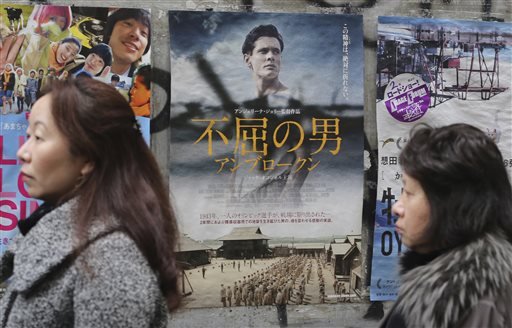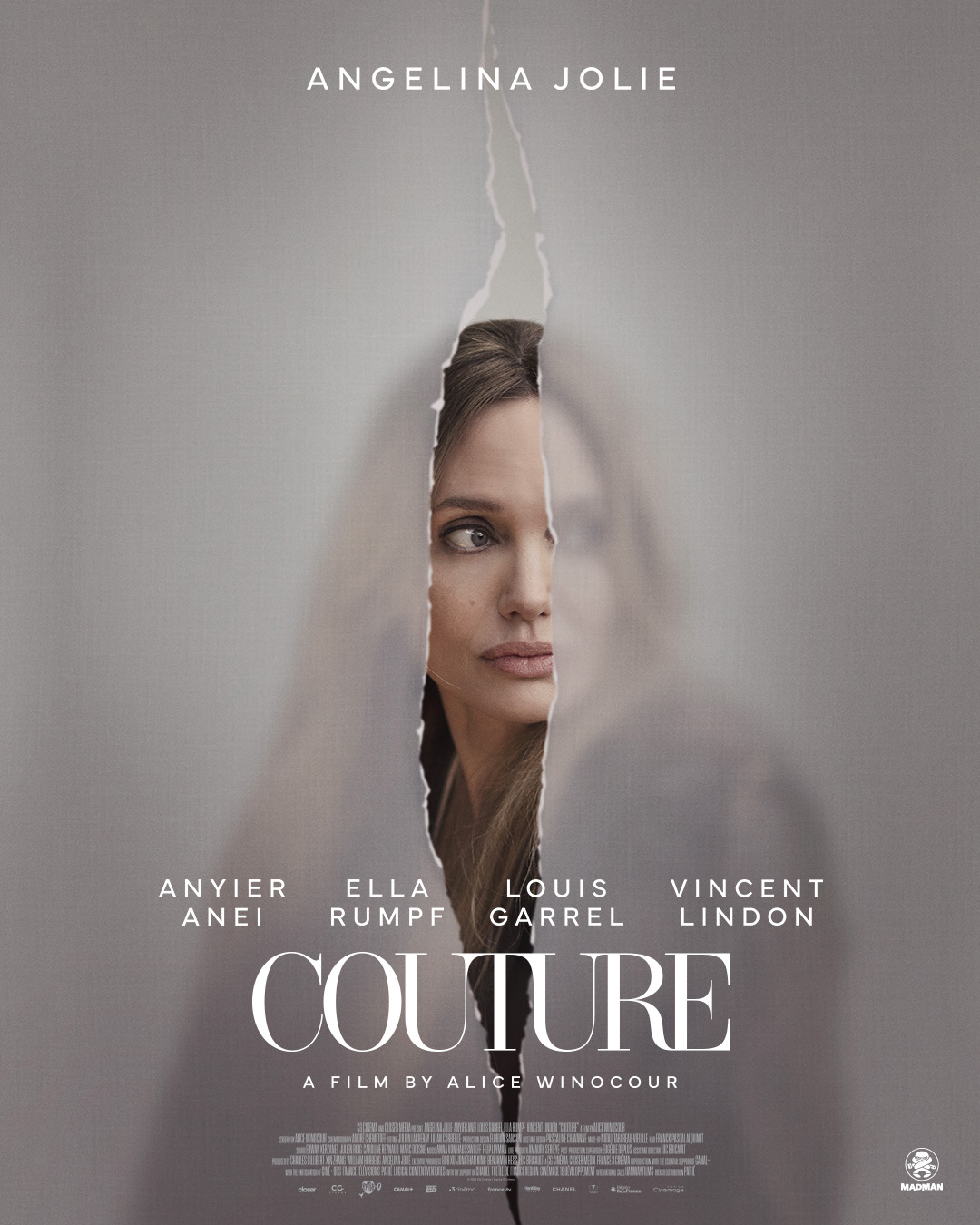Angelina Jolie's film 'Unbroken' finally opens in Japan
- Details
- Published on Wednesday, 30 November -0001 00:00
- Written by Busines Insider
Angelina Jolie's "Unbroken" opened Saturday more than a year after the rest of the world in Japan, where the main character endures as a prisoner of war and where some have called for a boycott of the movie.There were concerns that right-wing extremists may try to disrupt the opening. But the crowd at Theatre Image Forum in Tokyo, a small theater that specializes in independent films and documentaries, was peaceful, appearing engrossed in the film, flinching at the torture scenes and sympathizing with the hero, Louis Zamperini.The distributor said in a statement that it decided to go ahead with the showing because various views on war should be expressed, and because it was unnatural for a movie about Japan not to be shown in the country.A publicity official said the company had received some angry calls when it first announced the film's showing in October. Other than that, nothing unusual happened, and the film is scheduled to be shown in other theaters throughout Japan."Unbroken" is based on the true story of Zamperini, an Olympic athlete who gets shot down in a U.S. bomber and survives by floating in the ocean on an inflatable boat, but gets captured by the Japanese. He survives horrible torture in World War II camps until Japan's defeat in 1945.Much of the negative chatter on social media in Japan about "Unbroken," which still continues to some extent, alleges that the movie is "anti-Japanese."Many taking offense at the film are outraged that the book on which the movie is based mentions that Japanese soldiers engaged in cannibalism, although the film does not touch on the subject at all. Some historians say some Japanese soldiers did engage in cannibalism.The anger over "Unbroken" has brewed despite Japan boasting a long list of directors who made distinguished anti-war movies, including Akira Kurosawa and Kihachi Okamoto. Nagisa Oshima's "Merry Christmas, Mr. Lawrence," starring David Bowie, has a plot similar to "Unbroken," taking place in a POW camp.
But some in Japan have also had a hard time coming to terms with the country's brutal past of colonizing Asian neighbors and the barbaric acts carried out by the Imperial Army, such as the Rape of Nanjing, which began in 1937 and left 300,000 Chinese dead.Similarly, they reject historical studies that show women from several Asian countries, especially Korea, were forced into prostitution by the Japanese military. Some oppose the term "sex slave," which the U.N. uses, preferring the euphemistic "comfort women."In "Unbroken," Japanese characters do little but grunt, scream, punch and kick.Still, the film ends on a reconciliatory note, showing an elderly Zamperini proudly carrying the torch for the 1998 Nagano Olympics, and Japanese on the streets cheering.As a young man, Zamperini had competed in the 1936 Berlin Olympics as a runner, and had hopes to go to the next games, set to be held in Tokyo. But by then the war had started.After seeing "Unbroken," Katsuyuki Miyata, a member of the Japanese Self-Defense Forces, said that the closing scene was the best part of the film."I'd heard it was an anti-Japanese movie," Miyata said. "But it was a good movie."
 |













 Share
Share